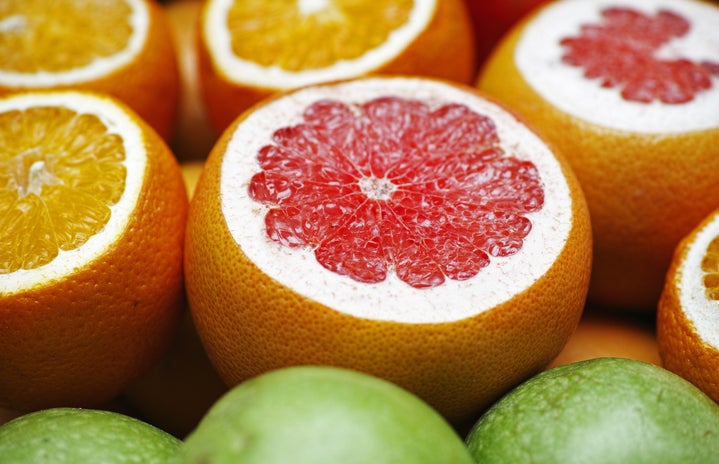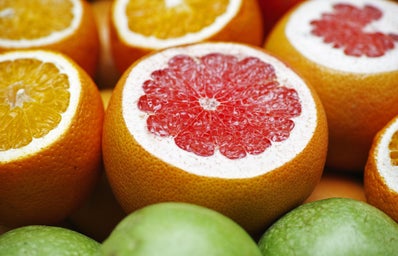With the rise of social media platforms such as Instagram, aesthetically pleasing salad bowls and smoothies have come to dominate our feeds, accompanied by #strongnotskinny and #cleaneating. Whilst on the surface, the promotion of a healthy and wholesome lifestyle seems to counter harmful ‘thinspo’ blogs, is the so-called ‘cult of clean eating’ simply the same insecurities and obsessions in disguise?
I know all too well the fine line between wanting to eat healthily and developing an obsession with eating the ‘right’ foods, beating myself up if I dare to eat anything full of refined sugars. Whilst many clean eating bloggers admit to having a sweet tooth, their idea of a treat is a sweet potato brownie or avocado mousse – not exactly my idea of indulgence.
(Photo Credit: Deliciously Ella)
Grace Victory’s BBC3 documentary ‘Clean Eating’s Dirty Secrets’, which aired earlier this summer, picks up on some of the issues the general public may take with the movement. When it comes to the expensive ingredients used by clean eating bloggers, Grace decries that many health foods “look tasty, but I’m not a millionaire.” Whilst eating well doesn’t have to cost a fortune, it does seem that the emerging cult of clean eating is a largely middle-class phenomenon, inaccessible to those on a tighter budget.
(Photo Credit: BBC)
Ella Mills (@deliciouslyella) is one of the most popular British health bloggers, with a cooking app and almost 950k Instagram followers. The daughter of an ex-Northern Ireland secretary and part of the Sainsbury dynasty, Ella is the epitome of affluence. Whilst cautious not to present herself as a virtuous vegan, many of Ella’s recipes are, nonetheless, alien to those who don’t want to invest the time or money into spiralising organic produce all day long.
Ella’s promotion of gluten and dairy free diets may sound glamorous, yet for those not intolerant to either, replacing them with free-from alternatives may be an unnecessary financial cost with few added health benefits. Gluten-free bread costs around £1 more than a regular loaf, and dairy-free milk substitutes cost considerably more than cow’s milk. As Grace points out in her BBC3 documentary, almost anyone can call themselves a nutritionist, yet may not be formally qualified to offer dietary advice to others. We shouldn’t be putting our health into the hands of unqualified bloggers just because their lifestyles appear trendy.
(Photo Credit: Deliciously Ella)
In reality, spending excessive amounts of money on ancient grains that you can’t pronounce won’t guarantee you a healthy mind or body. It does not cost a fortune to eat well, as, for example, in-season fruit and vegetables can cost just a few pence, and whole-wheat alternatives are often no more expensive than white bread, pasta or rice. Why then has the clean eating phenomenon alienated ordinary people, when the objective of leading a healthier lifestyle is not at all complex or costly?
Whilst Grace Victory makes some valid points concerning the inaccessibility of the clean eating phenomenon, she altogether fails to explore the positive aspects of clean eating, instead focusing on the sacrifices needed to lead a healthy lifestyle. Grace poses the body positivity movement against the clean eating trend, yet many prominent bloggers are advocates of both. For example, Mel Wells (@iammelwells) on her Green Goddess Life blog tells us of her newfound confidence after giving up extreme dieting, as “losing weight won’t make you love yourself.” Clearly then, ‘clean eating’ does not have to mean eating a low calorie diet that leaves you hungry and emotionally unfulfilled. Interestingly, the influential Hemsley sisters (@hemsleyhemsley) do not shy away from eating dairy or meat at all, but advocate a diet that incorporates healthy animal fats. Again, ‘clean eating’ doesn’t necessarily mean restriction, but rather eating processed foods in moderation.
(Photo Credit: The Telegraph)
Whilst steering clear of refined-sugar and processed foods has been proven to boost physical health, it is mentally exhausting to maintain a restrictive diet, and may be putting a strain on our wallets too. Whilst the clean eating movement has much to teach us about the benefits of whole foods, we must remember that the perfectly balanced meals we see on Instagram are just a selective snapshot of a blogger’s life. If we fail to realise this, we are at risk of developing an unattainable obsession with healthy eating, which can only do more harm than good.
(Photo Credit: WordPress)


